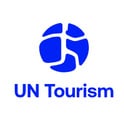Small Island Destinations In Critical Need Of Urgent Support As Tourism Plunges, UNWTO Warns
Without strong support, the sudden and unexpected fall in tourism could devastate the economies of Small Island Developing States (SIDS), the World Tourism Organization (UNWTO) has warned. Since tourism is a strong socio-economic pillar of many SIDS, the impact that COVID-19 is having on the sector places millions of jobs and businesses at risk, with women and informal workers the most vulnerable.
In the second of its Briefing Note series on Tourism and COVID-19, UNWTO has highlighted the severe impact the pandemic could have on livelihoods in these destinations. According to the latest data from the United Nations specialized agency, tourism accounts for more than 30% of total exports in the majority of the 38 SIDS. In some countries, this proportion is as high as 90%, making them especially vulnerable to falling tourist numbers.
Such a major shock translates into a massive loss of jobs and a sharp decline in foreign exchange and tax revenues, which curbs public spending capacity and the ability to deploy necessary measures to support livelihoods through the crisis, UNWTO further warns.
International Tourists dropped 47% in the first four months
International tourist arrivals have fallen dramatically, and destinations that rely on the sector for jobs and economic wellbeing such as small islands will be hit the hardest
In 2019, SIDS welcomed some 44 million international tourist arrivals and the sector earned US$55 billion in export revenues. International tourist arrivals were down 47% in the first four months of this year.
UNWTO Secretary-General Zurab Pololikashvili said: "The COVID-19 pandemic has caused an unprecedented disruption. International tourist arrivals have fallen dramatically, and destinations that rely on the sector for jobs and economic wellbeing such as small islands will be hit the hardest. As such, measures to mitigate the impact of COVID-19 on these states and to stimulate the recovery of tourism are now more critical than ever."
Informal workers and women at greatest risk
The United Nations estimates that SIDS economies could shrink by 4.7% in 2020 as compared to 3% for the world economy.
The UNWTO Briefing Note also highlights the risk posed to those working in the informal economy by the sudden fall in tourist arrivals in SIDS. As a sector, tourism is a leading global employer and, according to the International Labour Organization (ILO), more than half of all workers in the accommodation and food services sector in most SIDS reporting data are women. In many, this proportion is even higher, including in Haiti and Trinidad and Tobago (70%+).
At the same time, workers in the informal economy are at risk of falling into poverty as the impact of COVID-19 is felt in SIDS and other low- and middle-income countries worldwide, UNWTO also warns.
RELATED LINKS
- Download the news release
- UNWTO Briefing Note - Tourism and COVID-19, Issue 2, Tourism In SIDS - The challenge of sustaining livelihoods in times of COVID-19
- UNWTO Briefing Note - Tourism and COVID-19, Issue 1. How are countries supporting tourism recovery?
- UNWTO Online interactive dashboard on country and international policy responses to COVID-19
- UNWTO Data Dashboard - International Tourism and COVID 19
About UN Tourism
The World Tourism Organization (UN Tourism) is the United Nations agency responsible for the promotion of responsible, sustainable and universally accessible tourism.
As the leading international organization in the field of tourism, UN Tourism promotes tourism as a driver of economic growth, inclusive development and environmental sustainability and offers leadership and support to the sector in advancing knowledge and tourism policies worldwide.
Our Priorities
Mainstreaming tourism in the global agenda: Advocating the value of tourism as a driver of socio-economic growth and development, its inclusion as a priority in national and international policies and the need to create a level playing field for the sector to develop and prosper.
Promoting sustainable tourism development: Supporting sustainable tourism policies and practices: policies which make optimal use of environmental resources, respect the socio-cultural authenticity of host communities and provide socio-economic benefits for all.
Fostering knowledge, education and capacity building: Supporting countries to assess and address their needs in education and training, as well as providing networks for knowledge creation and exchange.
Improving tourism competitiveness: Improving UN Tourism Members' competitiveness through knowledge creation and exchange, human resources development and the promotion of excellence in areas such as policy planning, statistics and market trends, sustainable tourism development, marketing and promotion, product development and risk and crisis management.
Advancing tourism's contribution to poverty reduction and development: Maximizing the contribution of tourism to poverty reduction and achieving the SDGs by making tourism work as a tool for development and promoting the inclusion of tourism in the development agenda.
Building partnerships: Engaging with the private sector, regional and local tourism organizations, academia and research institutions, civil society and the UN system to build a more sustainable, responsible and competitive tourism sector.
Our Structure
Members: An intergovernmental organization, UN Tourism has 160 Member States, 6 Associate Members, 2 Observers and over 500 Affiliate Members.
Organs: The General Assembly is the supreme organ of the Organization. The Executive Council take all measures, in consultation with the Secretary-General, for the implementation of the decisions and recommendations of the General Assembly and reports to the Assembly.
Secretariat: UN Tourism headquarters are based in Madrid, Spain. The Secretariat is led by the Secretary-General and organized into departments covering issues such as sustainability, education, tourism trends and marketing, sustainable development, statistics and the Tourism Satellite Account (TSA), destination management, ethics and risk and crisis management. The Technical Cooperation and Silk Road Department carries out development projects in over 100 countries worldwide, while the Regional Departments for Africa, the Americas, Asia and the Pacific, Europe and the Middle East serve as the link between UN Tourism and its 160 Member States. The Affiliate Members Department represents UN Tourism's 500 plus Affiliate members.
